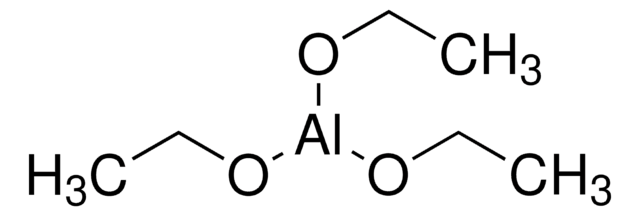451045
Iodine
anhydrous, beads, −10 mesh, 99.999% trace metals basis
Synonym(s):
Diiodine, Molecular iodine
About This Item
Recommended Products
grade
anhydrous
Quality Level
vapor density
9 (vs air)
vapor pressure
0.31 mmHg ( 25 °C)
1 mmHg ( 38.7 °C)
assay
99.999% trace metals basis
form
beads
resistivity
1.3E15 μΩ-cm
particle size
−10 mesh
bp
184 °C (lit.)
mp
113 °C (lit.)
SMILES string
II
InChI
1S/I2/c1-2
InChI key
PNDPGZBMCMUPRI-UHFFFAOYSA-N
Looking for similar products? Visit Product Comparison Guide
General description
accessory
signalword
Danger
Hazard Classifications
Acute Tox. 4 Dermal - Acute Tox. 4 Inhalation - Acute Tox. 4 Oral - Aquatic Acute 1 - Eye Irrit. 2 - Skin Irrit. 2 - STOT RE 1 Oral - STOT SE 3
target_organs
Respiratory system, Thyroid
Storage Class
6.1D - Non-combustible acute toxic Cat.3 / toxic hazardous materials or hazardous materials causing chronic effects
wgk_germany
WGK 2
flash_point_f
Not applicable
flash_point_c
Not applicable
ppe
dust mask type N95 (US), Eyeshields, Faceshields, Gloves
Choose from one of the most recent versions:
Already Own This Product?
Find documentation for the products that you have recently purchased in the Document Library.
Customers Also Viewed
Articles
Over the last decade, dye-sensitized solar cells (DSSCs) have attracted much attention because these unconventional solar cells exhibit high performance and have the potential for low-cost production.
Our team of scientists has experience in all areas of research including Life Science, Material Science, Chemical Synthesis, Chromatography, Analytical and many others.
Contact Technical Service








